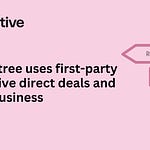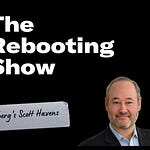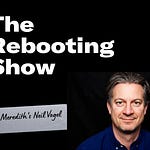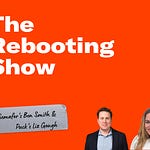On this week’s episode of The Rebooting Show, I spoke to Skift CEO Rafat Ali. What I like about Skift is it goes narrow and deep on the business of travel while situating it within the broader context of the global economy and societal trends. Covid was a reminder that external events are out of your control and the best you can do is adapt to them. Nobody likes the painful decisions you have to make to ensure simple survival. Skift ended up cutting a third of its staff and saw revenue decline 40%.
For Skift that meant shrinking its business, letting go and furloughing employees, and preserving cash to weather the storm. Skift used the pandemic to refit its business, casting off the expenses of offices and event venues, and building new high-margin products. Skift is more profitable now than it’s ever been. It has just crossed its employee count from pre-pandemic, even as Russia’s invasion of Ukraine, Covid outbreaks in Asia and a new Covid variant circulating Europe signal even more turbulence ahead. Some takeaways from our discussion:
Apply a consumer lens to B2B. Modern B2B is as audience-focused and quality as consumer media. That means investing in design, quality reporting and writing, and outlook. Travel was historically broken into sectors – flights, hotels, cruises, meetings – but that’s not how consumers approached the category, so Skift took the POV of people, not vendors.
Media and data make sense together… on paper. In media, the cliche “Uber for X” pitch is the “Bloomberg for X” pitch. Using publishing as a top of the funnel for a high-priced, recurring revenue data business is a business school case study. The problem: These are very different businesses to staff and run. Skift originally cast itself as a “travel intelligence company,” but ended up being a media company.
Covid expanded the talent pool. Skift used the pandemic to become a permanently distributed company. As it has hired people back, of the 20 people brought on, only one has been based in New York City. That’s led to a great expansion of its talent pool, not to mention a lower cost base.
Covid changed the client base. The travel industry was on mothballs for much of the pandemic, but Skift found that it was buoyed by the windfall realized by large tech platforms. Much of B2B media business models are driven by vendors, but the big tech platforms are where properties want to get for their stability and massive marketing budgets.
Balancing the revenue portfolio. The goal for Skift’s revenue profile is to be evenly split among events, advertising and subscriptions. Going into the pandemic, subscriptions were lagging a category like events. Now, with advertising on a hot streak and subscriptions coming back, Skift has seen subscriptions rise to 20% of revenue.
Check out The Rebooting Show on Apple or Spotify. Also, if you’re an Apple user, please leave a rating and review. Let me know what you think of the episode by hitting reply.
Lean media
A key part of primary-engagement media is getting the cost base right. Publishers often have to do so many things to make money that the expenses in the organization tend to go in many places other than the actual creation of content. Fixing that imbalance is key for building sustainable publishing brands.
Manufactured growth vs organic growth
People tend to look for shortcuts. Growth hacking – or marketing, as it used to be known – is an important part of reaching new audiences. Yet I often find too much emphasis placed on growth techniques like buying lists and subscribers through ads. Better to spend that time, energy and money on making the content better. As one TRB reader put it to me, “Anyone can buy growth, very few are good at building an audience from zero organically.”
Check out Mediagazer
For over 12 years, media professionals have relied on Mediagazer for an up-to-the-minute executive summary of trending news and commentary relevant to content and news industries. Just like its tech-focused sister site Techmeme, Mediagazer sifts through thousands of sites to present the very best picks on a single page. Visit it daily be sure to follow its high-signal Twitter account.
Politico as incumbent
One of the interesting things about getting older is people and companies you remember as the new kids on the block become the incumbents. Politico is now in that boat. It pioneered the hyperactive politics coverage that’s now the norm. WIth its sale to Axel Springer for $1 billion, Politico at 15 faces a new chapter not as the scrappy challenger but as an institutional power, using its heft to fend off challengers like Axios, Punchbowl, Grid and others.
Programmatic to the rescue
The Ukrainian media market needs help to survive. The ad market is decimated, direct reader revenue is impossible, so for the most part publishers are dependent on fundraisers to continue. (Consider donating to this one.) One bright spot: Programmatic advertising. For all the grief programmatic gets, it is very useful when suddenly traffic shifts from a new geography. Several independent Ukrainian publications are getting floods of readers from outside Ukraine to their English-language content. Ukrayinska Pravda, for example, hopes to cover a big chunk of its expenses from programmatic ads targeted to visitors from richer markets like the U.S. and UK.
Recommended
Sensible advice from Elizabeth Spiers about how journalists need to “minimum brand management.”
The Baltimore Banner is probably the most ambitious new entrant into the local news fray, readying for launch with 50 people in place and room for twice that (and $50 million in backing for its first four years).
Going to the beach or staring out the window can be a form of work, especially compared to the presenteeism of office life.
Jay Penske has built one of the more interesting publishing businesses around, even if he avoids the conference and podcast circuit.
ICYMI: Check out the sane person’s guide to web3, my conversation with TCG’s Jarrod Dicker on how crypto *could* upend publishing models.
ICYMI 2: Check out the session at did at the PRCA International Summit. Substack’s Lulu Meservey and I discussed the unbundling of publication and all its implications.
















Share this post